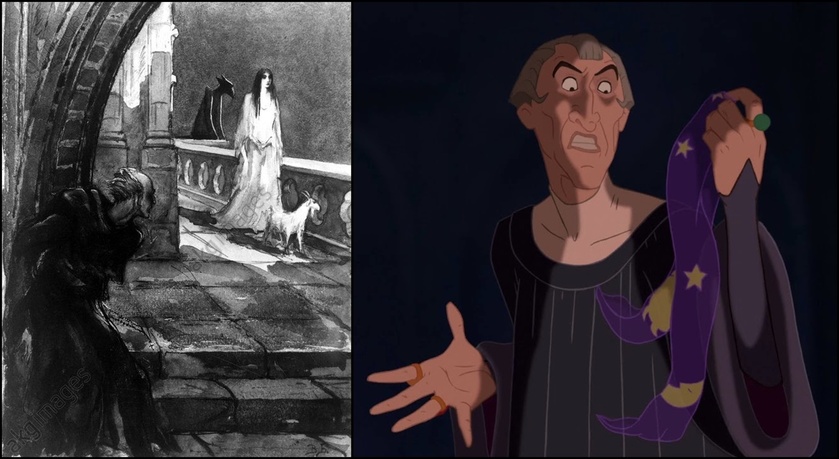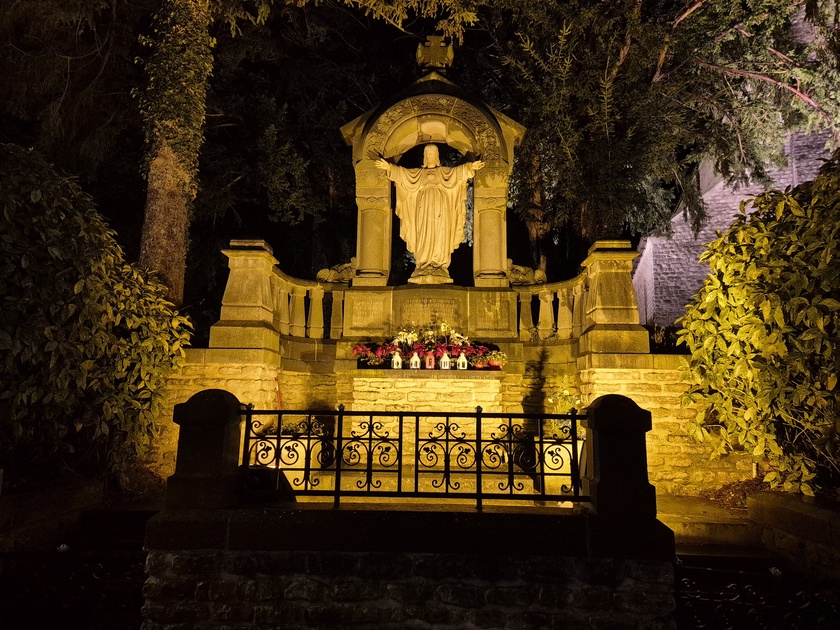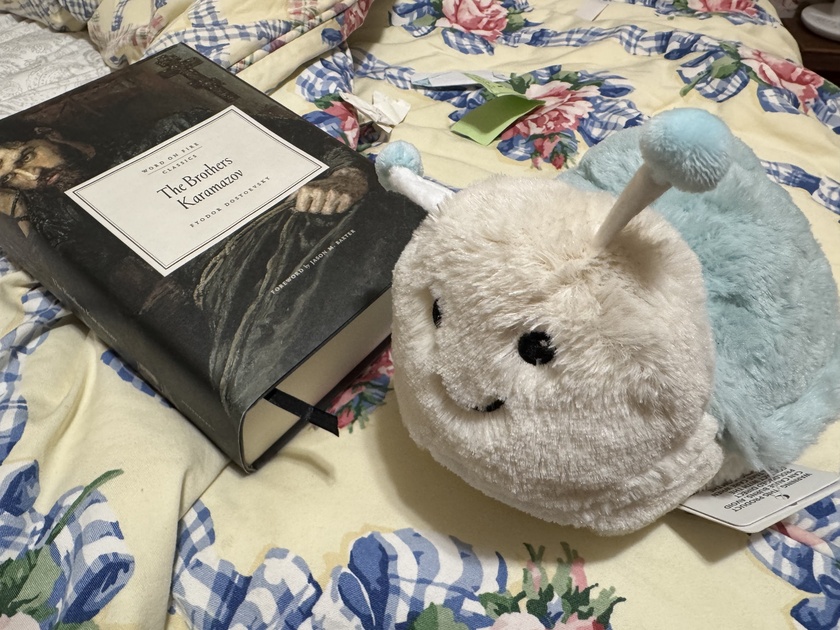Pop-Cultured Catholic #12: Does Victor Hugo’s Claude Frollo Character Convey a Solid Argument Against Priestly Celibacy… or Not?
Last week, I made a post on “The Hunchback of Notre Dame”/“Notre-Dame de Paris”, in which I dissected the relationships Esmeralda has with Frollo, the novel’s version of Phoebus, Quasimodo, and Disney’s version of Phoebus. For this next post, I would like to deconstruct the common talking point, in which the main villain Claude Frollo is framed as Victor Hugo’s prime argument against priestly celibacy, then share my contrasting take on it.
Firstly, Victor Hugo’s original characterization of Claude Frollo has many more sympathetic layers than his Disney animated counterpart. The book’s version of Claude Frollo starts out as a more good-hearted person. When the deformed Romani child Quasimodo is abandoned by his mother, Claude willingly takes him in, being reminded of his own orphaned baby brother named Jehan Frollo. Claude diligently educates Quasimodo, even improvising a form of sign language when the bells take a toll on Quasi’s hearing. He looks after Jehan Frollo too, feeling pressured to not only act as Jehan’s older brother, but also be the father figure that Claude lost and Jehan never knew. However, Claude Frollo becomes lonesome. Quasimodo’s appearance dooms him to have no life outside Notre Dame’s bell tower. Jehan also grows up into an ungrateful debaucher, who treats Claude with the same contempt as the Prodigal Son towards his father, without a redemptive ending. Meanwhile, Claude Frollo’s Disney animated counterpart is more villainous from the start. He kills Quasimodo’s mother, raises Quasimodo grudgingly, lies to him about how his mother abandoned him, and shows no familial attachments. And while the book’s Frollo is prejudiced against the Romani population, believing them to be unholy heathens, the Disney animated Frollo has a more explicitly defined goal of exterminating all the Romani in Paris.
But one of the most notable differences between the two versions of Claude Frollo is that the book version is a priest bound by celibacy, while the Disney animated version is a religious judge. In the book, Claude Frollo's parents groom him from boyhood into undertaking the priesthood, without him having any real choice in the matter nor the chance to understand relationships with women as anything other than a threat to his celibate vows. This contributes to him having an irrational fear of women, which drives him further into isolation and loneliness. From my recollection, when Frollo in the book becomes infatuated with the Romani street dancer Esmeralda, he is not only unsettled by his erupting physical desires, but also by an extreme emotional longing for her affections. This contrasts with the Disney animated film‘s Judge Claude Frollo. There, one is left to presume that Frollo’s celibacy is more self-imposed and that his infatuation does not go far beyond physical lust.
Some readers of Victor Hugo’s novel have interpreted that Frollo’s destructive lust for Esmeralda and his downward spiral catalyzed by it are heavily the fault of Catholic priests in that setting not being allowed to marry. This framing of priestly celibacy as the scapegoat has been similarly echoed in response to the infamous abuse scandals in the Catholic Church, which more recently came to light. In both cases, discussions have been raised about how priestly celibacy is a discipline and not dogma, whether that discipline should change, etc. In centuries prior to the novel’s setting, it was more normal to have married priests. And even today, there are some exceptions in the Church, such as married Anglican ministers converting to Catholicism and being ordained. Another example is in the Eastern Catholic Churches, where an already married man can be ordained as a priest, though he would not marry post-ordination.
While priestly celibacy in the story’s setting has not helped Claude Frollo, one should not overlook the many interior and exterior factors, other than the discipline itself, which led to Frollo’s downward spiral:
1.) Unlike Quasimodo, Frollo chooses to respond to his unrequited feelings towards Esmeralda with jealousy and selfishness. Quasi and Frollo are both lonesome recluses living in Notre Dame, who have been dealt bad hands and see Esmeralda as their potential source of happiness. When Esmeralda falls in love with Phoebus, Frollo stabs him in a jealous rage, leaving Esmeralda to be charged with witchcraft and Phoebus’ attempted murder. While Esmeralda does not desire Quasimodo back, the hunchback saves Esmeralda from execution, gives her sanctuary in Notre Dame, selflessly tries to bring Phoebus to her, and continues trying to protect her. Meanwhile, Frollo never offers to save Esmeralda, in any way that is not conditional on her becoming his lover… on top of being responsible for her predicament in the first place. And every time he speaks with Esmeralda, he wallows in self-pity. The closest he does to expressing pity for Esmeralda is when he commits self-harm, while listening to her torture.
2.) Frollo refuses to take responsibility for his own actions, out of pride, hypocrisy, and a growing resignation to fate over his own free will. He hardly ever accepts that he bears some fault and needs to repent no less than any other sinner. One thematically standout scene from the book involves him eyeing an inscription of the Greek word “Ananké”/“ANATKH”. It refers to the primordial goddess of destiny and necessity, as well as fate in general. Simultaneously observing a fly caught in a spider’s web, he begins to imagine himself as both the fly and the spider, doomed to a set course by his imbued wants, Satan’s machinations, and God’s plan. While a Calvinistic predestination is heretical to the Church, Frollo begins to increasingly blame his struggle with sin on God not protecting him from the devil and Esmeralda’s “bewitchment”. In the book, he even utters lines similar to the lyrics in Disney’s “Hellfire” song: “It's not my fault! (Mea culpa) I'm not to blame! (Mea culpa) It is the gypsy girl, the witch who set this flame! (Mea maxima culpa) It's not my fault! (Mea culpa) It’s in God's plan! (Mea culpa) He made the devil so much stronger than a man! (Mea maxima culpa)”.
3.) Even if Claude Frollo was married, it would not necessarily remove his deeply held prejudice against the Romani in Paris, nor his chance of still facing lustful temptations in some form. His prejudice is one reason why he has less qualms about persecuting Esmeralda and can easily convince himself that she is a witch. That same flaw could have still motivated him to commit or promote other malevolent actions against the Romani, if he had a spouse. And if he happened to still find Esmeralda desirable while married, then that bigotry and his now-adulterous thoughts could yield its own toxic mix.
4.) As mentioned before, Frollo is pretty much railroaded by his parents into the priesthood, with seemingly no real choice nor understanding of what he would be taking on. Supposing a married relationship could have helped him experience more love and not be so obsessively attached to Esmeralda, that could have been given to him without needing to abolish priestly celibacy. A third option would have been not pushing Frollo to become a priest in the first place. At least nowadays, I know some priests who dipped their toes into dating and romantic relationships first, before ultimately discerning their call to the priesthood and making that vow. Besides letting a would-be cleric better understand that decision, it could also provide a chance to discover if one’s calling is actually to marriage. In fact, I myself was even advised by my confessor and other Catholic mentors to have some experience with dating under my belt, before trying to definitively discern whether I am called to marriage or lifelong singlehood.
5.) It seems that Frollo has never had a chance to welcome and experience platonic relationships with people of the opposite gender, which is ironically how Quasimodo’s arc in the Disney version is resolved. In the Disney version, Quasimodo similarly experiences heartbreak, when he sees Esmeralda falling romantically in love with Phoebus rather than him. But then Quasi learns that he and Esmeralda can still love one another as best friends, making it not an all-or-nothing deal. As for the book version of Frollo, it appears he was never given a chance to see that as an option, thus making him fear relationships with all women as a threat to his celibate vows, plus contributing to his apparent “Madonna-whore complex”.
6.) It also seems Frollo could have really benefited from having philosophical works like Saint/Pope John Paul II’s “Theology of the Body”, which counterbalance the more cynical attitudes some early Church fathers expressed towards sexuality. Such writings might have encouraged him to see chastity in a light that emphasizes the dignity of the other person, a need to integrate the body’s desires with love, the parallels between marital love and the Holy Trinity, the original goodness of the body, and so on. If those observations were articulated and widely taught during the book’s setting, maybe Frollo would not have grown up fearing and repressing that part of himself. And he might have been more encouraged to think about how the person being lusted over is sinned against, rather than only viewing himself as the victim of his lustful thoughts. I even made a recent post in my “Proposing New Ways to Help Understand Chastity” series, where I share how I think those yearnings can still be a blessing for someone called to virginity or celibacy.
When one looks at the full character, it becomes clear just how many ways Claude Frollo’s tragic descent could have been avoided, through different choices and/or circumstances, without needing priestly celibacy to go away in the Catholic Church.
To say one last observation, when some people blame priestly celibacy as the main reason for fictional or real-life abuses, it both denies accountability on the priests’ part and features some of the same rhetorical DNA that makes up “rape culture”, homophobic prejudice, and other harmful mentalities. All too often, people have blamed abuse victims for supposedly dressing or acting immodestly. In the wake of McCarrick's scandal, I myself had to speak up for people, who were treated as inherently more liable to be predatory just for having same-sex attraction. And I have seen individuals in communities like the Evangelical Christians push toxic attitudes, where a wife can be deemed at fault for her husband’s immorality, if she is not being his “outlet” enough. What do all these mindsets have in common? They blame someone’s real or imagined misbehavior on them having an awakened and un-indulged desire. That is, rather than the person choosing to treat others as objects to covet, subjugate, torment, etc. out of their own free will.
Overall, while the prevalence of priestly celibacy is a discipline that the Catholic Church may change in the future, I doubt this hypothetical change will be motivated by real or fictional examples of clerical abuse. Victor Hugo’s Claude Frollo is indeed a compelling and tragic literary character, but my analysis illustrates how there are many other factors ultimately at fault for his demise. There are many celibate people, who are well-adjusted and can live out their calling, without making an enemy out of their passions. Both marriage and clergy life are self-giving vocations, which demand great commitment and personal sacrifice. So it is often helpful when a man has the freedom to go all in for either one or the other (especially in the current Latin Catholic Church). For a long time, practical reasons like this have contributed to the discipline of priestly celibacy being the norm, and it will likely continue to do so for a long time in the future.
For this post’s supplementary material, I am featuring the clip of “Hellfire” again, the aforementioned post in my series on chastity, a National Catholic Register article clarifying married priests in Eastern Catholicism, and Cinema Therapy’s video on the Disney Version of Frollo…
1.) Claude Frollo's "Hellfire" Song
https://www.youtube.com/watch?v=JkGb6DlbcD0
2.) “Proposing New Ways to Help Understand Chastity — Part 5: How the Appetite Might Be a Blessing Even for Those Called to Celibacy or Virginity”
https://mattfradd.locals.com/post/6135837/proposing-new-ways-to-help-understand-chastity-part-5-how-the-appetite-might-be-a-blessing-e
3.) NCR’s “5 Myths about Married Priests in Eastern Catholicism”
https://www.ncregister.com/blog/5-myths-about-married-priests-in-eastern-catholicism
4.) Cinema Therapy’s “Villain Therapy: FROLLO from The Hunchback of Notre Dame”
https://www.youtube.com/watch?v=rGFmEJcTwwQ
































